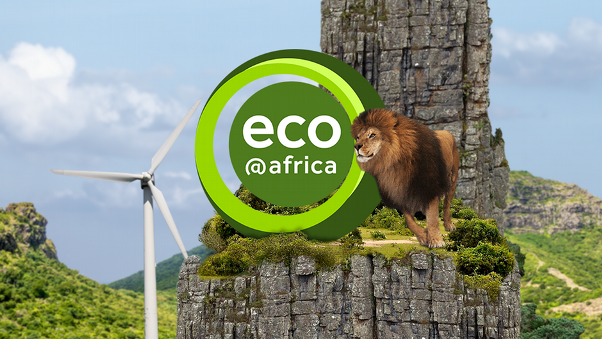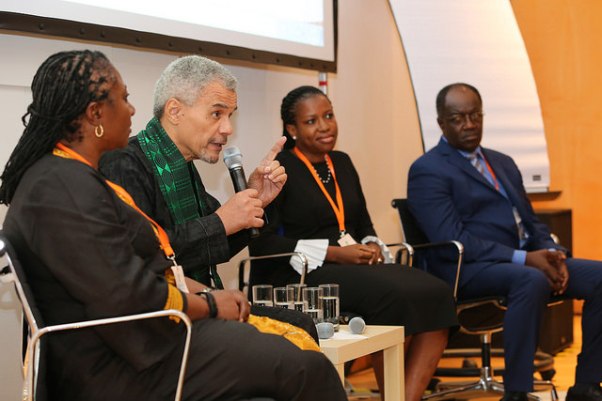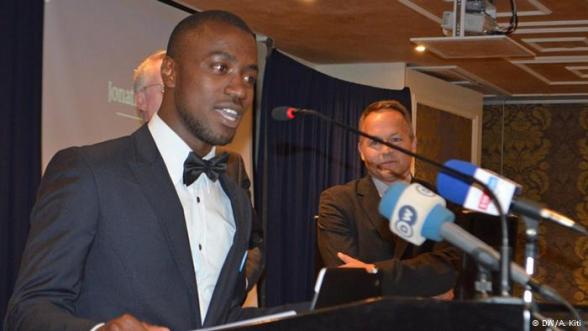Search Results for Tag: Channels TV
Market roundup: December 2016
Latin America
DW has two new online partners in Venezuela. Prodavinci.com, one of the top-three news and information websites in the country, is now including full articles from DW in Spanish. ElEstimulo.com, another very popular Argentinean news site, has embedded a DW content box on its news page.
Also in Argentina, Canal 4 San Juan is now a part-time DW programming partner. Included are Spanish-language news broadcasts and the programs Economía, Todo gol, Escápate und Primer plano.
Africa
DW has added 20 TV partners for the environmental program Eco@Africa at the DISCOP trade fair in Johannesburg. The program is produced in cooperation of Channels TV in Nigeria and KTN in Kenya and is valued in African markets for its outstanding and insightful reporting.
News content from DW is being integrated into Mail & Guardian Online, a news website in South Africa. Included are full-text articles and video feeds from Africa on the Move.
Europe
Journalists with DW’s Europe desk used new live streaming technology to shoot a live broadcast in cooperation with the Serbian public broadcaster RTS. Using DMNG safe stream app on a mobile device, a Serbian anchor from DW was broadcast live in Belgrade on the morning talk show, “Tako stoje stvari” (That’s it).
The Finnish telecom provider OYI is carrying DW (Deutsch) in its cable and IPTV package. OYI has an estimated 500,000 subscribers.
Get AS cable network is new broadcasting partner for DW’s English-language channel in Norway, with around 500,000 subscribers.
Oceania
Channel 44 in Adelaide, Australia is now regularly broadcasting PopXport, Arts 21, Europe in Concert and Kick Off! to a potential audience of 1.25 million viewers.
Asia
Wah Cable Network and Seven Star Digital in Wah and Karachi, Pakistan are carrying DW’s English-language channel and together reach 30,000 subscribers.
Market roundup: November 2016
Africa
Eco@Africa, DW’s program covering environmental innovation in Africa and Europe has a new coproduction partner in Africa. KTN, the second-largest channel in the Kenya is joining Nigerian broadcaster Channels TV as a coproduction partner. Now with pan-African coverage, the show will be hosted by anchors from both channels.
Latin America
DW has started a partnership with Globo, the largest media company in Brazil and the second-largest media conglomerate in the world. Since late October, DW articles have been featured on Globo’s news website, G1, and have already generated thousands of page views.
Middle East
Leading Turkish telecommunications provider Turkcell is now carrying the programming lineup from DW and DW (Deutsch) for its IPTV and OTT platform, Turkcell TV Plus. Over 1 million users subscribe to the service on Smart TV, Web TV, IPTV and mobile devices.
Asia
DW’s science program in Indonesia, Inovator, is being broadcast by the terrestrial broadcaster Satelit TV. The latest episode of the show will be broadcast twice weekly in the region around Purkowtero on the island of Java to around 100,000 households.
DW has two new partners in Pakistan. City Entertainment Cable in Wah and Crystal Cable in Rawalpindi near Islamabad have made DW a part of their basic packages. Both partners have a combined 45,000 subscribers.
Oceania
The Australian pay TV provider Puma TV is broadcasting DW and DW (Deutsch) on the popular Optus B D2 satellite. DW’s channels will be available alongside 30 other free-to-air broadcasters offered to European immigrants in the region.
Eco Heroes: A hands-on approach to environmental activism in Africa
At DW’s annual media conference, the Global Media Forum, Nigerian “Eco Heroes” appeared in a panel discussion hosted by Eco@Africa anchor Nneota Egbe to share their ideas and insight into environmental problems affecting Nigeria. The Eco Heroes share a common passion for raising environmental awareness and helping their communities through activism and innovation.
DW’s environmental program Eco@Africa shows the world that environmentally conscious innovation and development starts with people and communities. The coproduction from DW and Channels TV in Nigeria showcases both problems and solutions involving an array of environmental issues in Africa and Europe.
Environmental problems in Nigeria combine social, political and technical issues that the Eco Heroes addressed during their discussion. One pervasive environmental problem in Nigeria is plastic waste. Eco Heroes Bilikiss Adebiyi and Yahaya Ahmed, both take this on in creative and unexpected ways. Coca Cola alone sells around 4 million plastic bottles a week in Nigeria and the empty bottles can be put to good use. Adebiyi created an incentive for recycling by founding WeCyclers – a bicycle-powered recycling service in Lagos for densely populated and low-income neighborhoods. For their recyclable items, households receive reward points that they can exchange for goods and services – keeping plastic out of landfills and raising awareness in the community.
Ahmed, CEO of the Development Association for Renewable Energies (DARE) takes the bottles whole, fills them with sand and uses them in constructing homes, walls and water containers. DARE also looks at the social aspects of environmental problems and recruits people who have had to leave their homes because of increasing desertification.
The Eco Heroes also emphasized that social awareness is a crucial part of environmentalism in Africa. Each of them spoke about putting problems in terms that people can understand. For example, rather than talking about the “environment”, Desmond Majekodunmi said he prefers to think of a “life support system”– an idea that encourages people to act with care. He said educating children on environmental issues and doing simple things like planting trees are tangible ways to address such large problems.
A holistic approach to environmentalism combines social and structural issues. Priscilla Achapka, Executive Director of the Women Environmental Program, warns of a “social time bomb”, as lakes dry out and populations are forced together. Her work focuses on teaching women who run households sustainable solutions to everyday issues, which will create better living spaces in communities that will be growing closer together.
The Eco Heroes agreed that the media is essential for making these complex problems understandable and conveying essential information for environmentally conscious living. They praised DW, Channels TV and Eco@Africa for cooperating and helping to make a valuable contribution to raising awareness and spreading a positive message.
Eco@Africa has also proven to be a big success with audiences Nigeria. And after a successful start there, the show will soon be expanding to Kenya. Kenya Television Network (KTN) will be the new broadcasting partner for the show in East Africa. The expansion will provide a source of information that can make a positive difference to communities across the region. KTN has been a DW programming partner since 2012.
DW adds a new dimension to cooperating with African media
Across Africa from Kenya to Nigeria, a new media-savvy generation is emerging along with a new demand for opportunity, development and quality journalism. By reaching out to individuals, creating new partnerships and actively encouraging media development, DW has created a foundation for success in different African markets, while at the same time giving value back.
By adding value to partnerships and cooperating with local media in different regions, DW can help improve people’s lives with information and help set examples of transparency, legitimacy and professionalism in media.
DW’s international media development organization, DW Akademie, is very active in Africa and has been for over 50 years. DW Akademie’s first international project was a radio training program in Rwanda. Their newest initiative is a recently-signed partnership with Aga Khan University Graduate School of Media and Communications (AKU-GSMC) in Nairobi, Kenya.
The university is focused on developing media professionals for the Kenyan media market. DW is there to help guide and educate them with world-class standards of journalistic practice. In return, DW will gain valuable insight into the nuances of the local media landscape. The six-year agreement centers on the development of professional education and training standards for communications experts in East Africa. Through exchanging experience, competences and ideas, both sides will benefit. DW gains visibilty in an important media market and the courses at AKU-GSMC can improve and develop with the expertise and experience provided by DW Akademie.
Kenya is one of the quickest growing media markets in Africa and there is a burgeoning interest in media education amongst young Kenyans. The market is growing more competitive and innovative.
DW recently produced a journalism competition for young journalists in Kenya. They were asked to create a journalism project that profiled a local hero in their region. Local heroes are people who make a difference in their communities and help those around them. The competition was organized in cooperation with The Standard Group, which is the largest media company in Kenya. The competition showed how through cooperating with partners, DW can affect the lives of people in African target audiences while gaining valuable partners and a positive local image.
Nigeria is another important market for DW in Africa. DW has been expanding its presence in the region after adding two foreign correspondents last year in Lagos and recently signing a deal with Channels TV, the largest news broadcaster in Nigeria. The deal includes direct DW reports from the Frankfurt Stock Exchange produced exclusively for audiences in Nigeria. This example of coproducing and sharing technical capacity is a model for the future of how DW will provide international quality journalism to local audiences.
Programs like Focus on Africa and Crossroads Generation emphasize individuals who help to set examples and serve as role models. They provide examples that turn away from the image of the continent as only being beset by turmoil and focus on positive actions from a younger generation.
DW will succeed in African markets by working with partners, reaching people where they are, educating media professionals and promoting journalism education. These are all very positive steps with the consistent goal to improve the overall media landscape in African countries.








Feedback